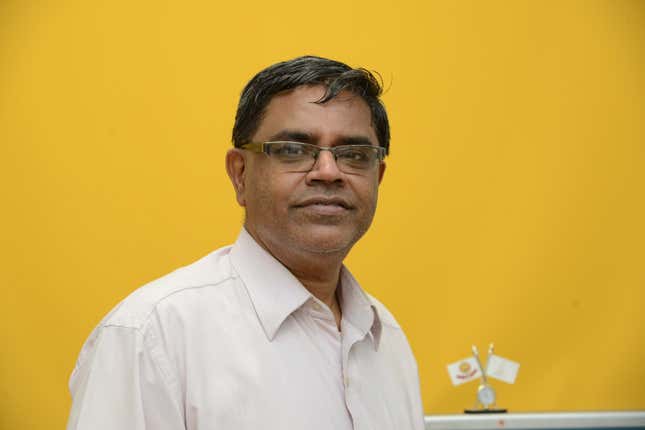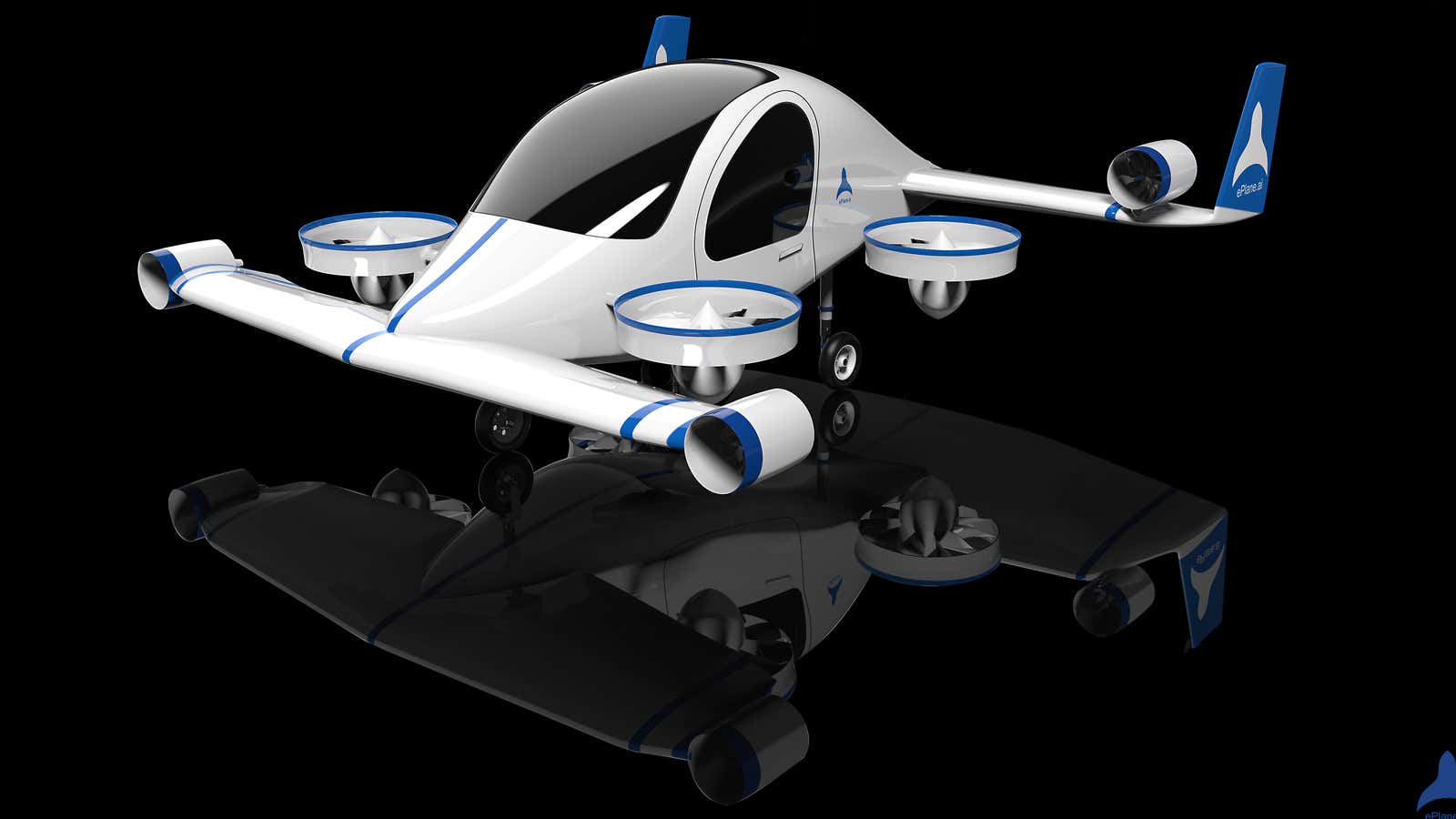An Indian startup has joined the race to fly the world’s first electric air taxi.
In 2020, at least two aviation startups had vowed to launch such a service: UK-based Vertical Aerospace planned to begin operations in 2024 while Germany’s Volocopter, which has been readying vertical-take-off craft, had set a 2023 deadline.
Last November, Volocopter even tested a completely electric vertical takeoff and landing (eVTOL) air taxi—with a crew—in Seoul, South Korea.
India’s ePlane Company has now joined the fray. Incubated at the Indian Institute of Technology Madras (IIT-M), the firm expects to fly the country’s first electric air taxi and cargo transport aircraft sometime in the next two years. The plane, an eVTOL, would be small enough for last-mile delivery, the firm has said.
Co-founded by IIM professor Satya Chakravarthy and his student Pranjal Mehta in 2017, the ePlane Company’s aircraft design and prototypes have to now go through the standard certification process.
“…We plan to put out our prototypes for flight tests starting from later this year and put them through the certification process and work with the stakeholders to spawn the network required for operations alongside,” Chakravarthy said.
ePlane to help with India’s traffic problem
The startup, which raised $1 million in its series A round of funding in 2021, will begin hiring pilots as early as next year and launch operations between two cities—Mumbai and Bengaluru—initially.

“ePlane Company will start with 20-25 aircraft initially to offer a credible urban aerial mobility service before spreading to other cities and adding more aircraft per city progressively,” Chakravarthy said.
Looking to offer smoother and more environment-friendly aerial mobility, he believes that time is the one area where their planes will have an edge over road taxis.
Not only could they help reduce India’s traffic problem these aircraft will reduce travel time by up to 10 times at only 2-3X the cost (of regular cabs). It must be noted here that at least three of the world’s worst cities, in terms of road traffic congestion, are in India, according to a 2021 report by a global location technology specialist. These choked cities are Mumbai, Bengaluru, and Delhi.
However, the question then arises: Why hasn’t anybody in India tried operating an electric air taxi yet?
How close is an electric air taxi to reality?
Flying an electric plane is likely to be far more challenging than operating electric automobiles. An appropriately-sized battery that strikes a balance between weight and duration of charge is only the first of these challenges.
Even the successful operations conducted in other parts of the world were limited in duration. Volocopters’ Seoul test flight, for instance, flew only three kilometres in five minutes.
There are other issues as well.
India’s nascent EV sector is already faced with serious safety concerns fueled by a series of blazes across the country over the past few months. Although that hasn’t disheartened Chakravarthy’s five-year-old enterprise.
“Planes go through a stringent certification process. There is quite a good deal of maturity in understanding the limitations of Li-ion batteries that inform the standards adopted for electric aircraft certification today,” said e-Place Company’s founder.
The designs of his company’s eVTOL aircraft, he said, are based on thorough simulations and battery testing of the internationally used cells.
The likely small market size—EVs constitute a mere 1% of India’s automobile sales—for such a service doesn’t bother him either.
“The EV industry is still mostly following an ownership model, whereas this is going to be based on a ride-share model for mass adoption. So, the nascency of the EV industry does not have much to do with electric planes. They are parallel efforts,” Chakravarthy said.
India’s traditional aviation players will soon be taking the EV route, he predicted.
